10 de diciembre 2020

The Cuban Regime’s Punishment for Filming a Protest

PUBLICIDAD 1M
PUBLICIDAD 4D
PUBLICIDAD 5D
The Ortega regime is currently holding 109 political prisoners. Their family members continue demanding their freedom and respect for their rights
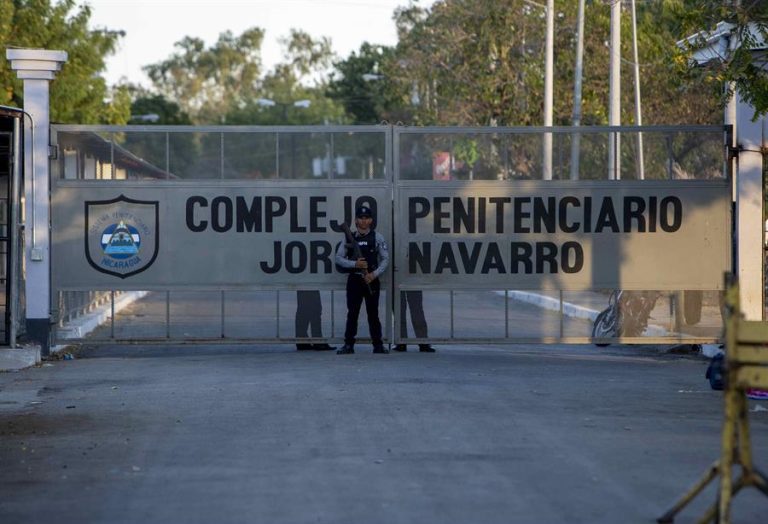
Yaritzha Mairena urges opposition forces to “unify a strategy” to free the remaining political prisoners and work towards “access to justice.”
Twelve political prisoners are currently being held in “little hellhole”. That’s what they call this unit of small, hot and dark cells in the La Modelo prison. These are maximum security cells, made to hold the most highly dangerous prisoners.
Normally their occupants would be criminals who had been involved in large-scale drug trafficking or organized crime. However, since the April 2018 social uprising, they’ve become punishment cells for the prisoners of conscience. The prisoners’ relatives and human rights organizations denounce this practice.
For the second consecutive year, seven of these twelve prisoners of conscience will spend their Christmas in total isolation. Their crime was becoming involved in the protests of the April Rebellion. The regime has covered up this fact by finding them guilty of common crimes. “They feel forgotten, cast aside,” Karen Lacayo asserts. She’s the coordinator of the Association of Relatives of Political Prisoners and the sister of one, Edward Lacayo.
One of the protest mechanisms the prisoners of conscience have implemented is a hunger strike. They’ve used it as a way to demand their freedom and an end to mistreatment and human rights violations.
In the first round of the hunger strikes, 53 of the 109 political prisoners participated. These prisoners still remain in the regime’s jails. Three of them decided to sew their lips closed as part of their demand to be set free. They were also demanding that the regime cease the ongoing harassment of their families.
The majority of the political prisoners were punished for their participation in that first hunger strike. They were punsihed for refusing to eat when prison authorities attempted to photograph them sitting with food in a prison cafeteria.
Eight prisoners participated in the second hunger strike. Among them was Edward Lacayo. His sister Karen affirms that they punished him by refusing to allow family visits. The authorities claimed he didn’t want to come out of his cell, but the family believes that’s untrue. They have also blocked her brother’s conjugal visits. His wife goes to the prison every month, but she hasn’t been permitted to see him. This has been going on for nine months.
The prisoners, Karen states, complain that the political debate “is centered only on the elections [scheduled for November 2021]. The prisoners ask them [the opposition] not to participate in elections while they remain locked up.”
The regime, however, denies that these are political prisoners. They claim they’re criminals. At the same time, they deny the denunciations of torture and mistreatment. “We know that there are always some prisoners who invent stories about being tortured,” Daniel Ortega declared. He made that comment in October, during an activity of the Ministry of the Interior.
The latest report of the Inter-American Commission for Human Rights was published in October of this year. It’s titled: “Persons deprived of liberty in Nicaragua in the connection with the human rights crisis that began in April 2018.” The report notes: “Since the start of the crisis in Nicaragua, the IACHR has received testimonies about electric shocks from tasers, brutal beatings with blunt objects, and humiliation and insults to a point bordering, in some cases, on torture.”
Confidencial has identified the twelve prisoners of conscience who remain in the maximum-security cells. They did so through family members and the associations demanding freedom for the political prisoners. Below we present brief profiles of each.
Perez is 30 years old and a native of Masaya. He was in the Covid-19 ward of the German-Nicaraguan Hospital, although his formal diagnosis stated “pneumonia”. After recovering, he was taken to a maximum-security cell in “La Modelo”. Perez is serving a 15-year sentence, supposedly for belonging to a criminal band and engaging in drug trafficking. He was initially captured on November 12, 2019.
His family members dispute the charges against him. They say he worked on laptop and cellphone repairs in the Masaya market. When the 2018 protests broke out, he became part of an organization called Nicaraguan University Student Resistance. Members of this group protested at the barricades set up in Masaya, using home-made mortars and Molotov cocktails.
Lacayo, 45, has been in jail for a year and nine months. He got involved in the protests against the Ortega government in 2018. Under the alias “She-wolf”, he became one of the leaders of the indigenous people of Monimbo, in Masaya. On March 15, 2019, he was captured by hooded civilians at El Ostional, Rivas, while attempting to flee to Costa Rica. He received a 15-year prison sentence for alleged trafficking of narcotics, psychotropic drugs and other substances. His family declares that he’s a political prisoner. They state that everything he’s gone through is in reprisal for his activism during the civic rebellion.
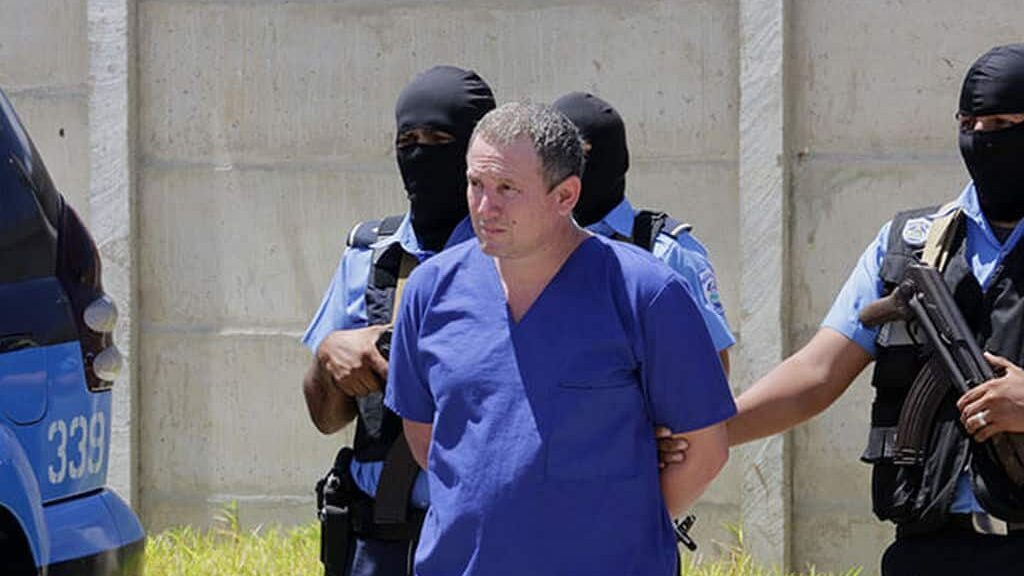
Edward Lacayo when he was formally presented to the court by the National Police. Courtesy photo
Solis, now 21 years old, had already spent eleven months in prison. After his release, he became involved once more in the protests. This time, he attended demonstrations to demand the freedom of the other political prisoners. His face was a familiar one at the flash protests held at the Central American University. Kevin was rearrested on February 6, 2020, accused of aggravated robbery against an Ortega sympathizer who infiltrated the protests. He received a sentence of four years, six months in prison. His family states that he’s been tortured.
Both were captured by a group of Nicaraguan soldiers last August 15, in San Juan de Nicaragua. They were returning from exile in Costa Rica. The regime accused them of murder, aggravated robbery, narcotics trafficking, and trafficking, possession and use of restricted weapons. Porfirio Gonzalez, Hader’s father, declares that since his arrest his son has been beaten and humiliated. He affirms that the site Helder’s in, “isn’t a jail, but a mouse cave.” The trial is still pending.
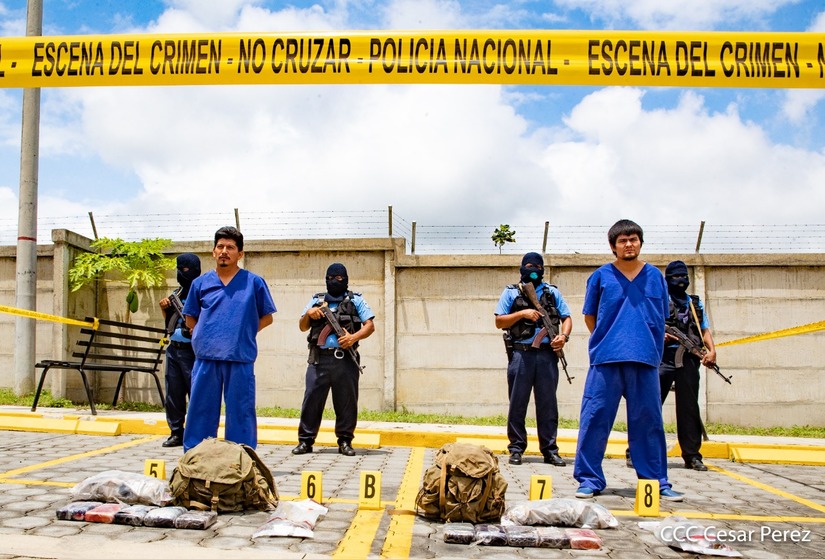
Ortega’s police force presents Cristhian Meneses and Hader Gonzalez, both prisoners of conscience. Photo taken from El 19 Digital.
Jaime has been jailed and sentenced twice in under three years, He was detained in 2018 and sentenced to 22 years, for the supposed killing of a member of the paramilitary. He was released on June 10, 2019. A month and a half later, Jaime Navarrete was once again arrested. This time, he was accused of illegal possession of drugs and weapons and sentenced to three and a half years. Navarrete has suffered a number of beatings, the effects of which have made it hard for him to breathe.
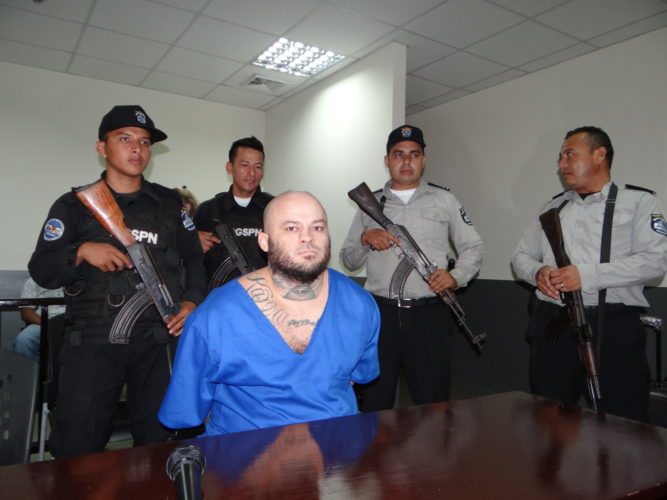
Navarrete was abducted, again, on July 24 of this year by the Ortega Police. Presumably he is in the infamous El Chipote interrogation jail. Photo from his first detention.
Soza, a native of Matagalpa, is sixty years old and has been in prison for ten months. He was taken into custody on Sunday morning January 26, 2020, accused of drug trafficking. On July 2 he was sentenced to 10 years in prison, plus fines worth nearly US $900.
Montealto, 27, participated in the civic protests against the Ortega regime. He supported the young people who were occupying the Polytechnic University in Nicaragua. Montealto was taken prisoner on November 20, 2019, accused of drug trafficking and organized crime.
Jose Santos has been arrested three times. Each time, according to the testimony and complaints of hisfamily members, he’s been tortured. On November 12, 2019, he was detained for the third time. He was found guilty of the supposed crime of narcotics trafficking, and given the maximum sentence of 15 years in prison.
John Cristopher was in his third year of Civil Engineering at the Central American University. He had continued his studies at that private university after being expelled from the National Engineering University (UNI). At the UNI, he’d become one of the leaders of the Movement for University Autonomy. Police agents captured him on the morning of February 28, when Cerna was leaving the room he rented in the “Edgard Munguia” neighborhood.
John Cristopher was sentenced to twelve years in prison for the supposed crime of narcotics trafficking. He was also assessed with a fine of over US $1,000. Since September, Cerna, 24, has been secluded in the maximum-security cells of La Modelo. He was one of the political prisoners who joined the hunger strike to demand his freedom. Wilbert Perez, the prisoner’s brother, stated that Cerna was currently suffering depression and other health problems.
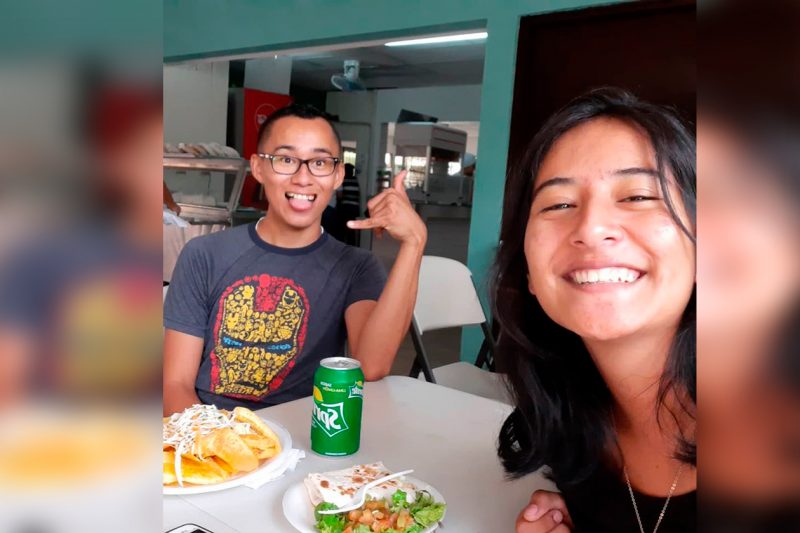
John with his sister, Alba Cerna, who has fought side-by-side with his mother for his release from prison. Courtesy photo: Confidencial.
Carlos Bonilla has been jailed and sentenced twice. In 2018, he was accused of killing Hilton Rafael Manzanares Alvarado, a member of the riot squad. He was originally sentenced to 90 years in jail. However, less than a year later, he was released under the Amnesty Law the Ortega regime passed in 2019.
Bonilla was rearrested, however, on January 21, 2020. This time they accused him of illegal arms possession. He was found guilty of this and sentenced to one year in jail. A family member, who asked to remain anonymous, assured that both times that he’s been imprisoned he’s been confined to a maximum-security cell.
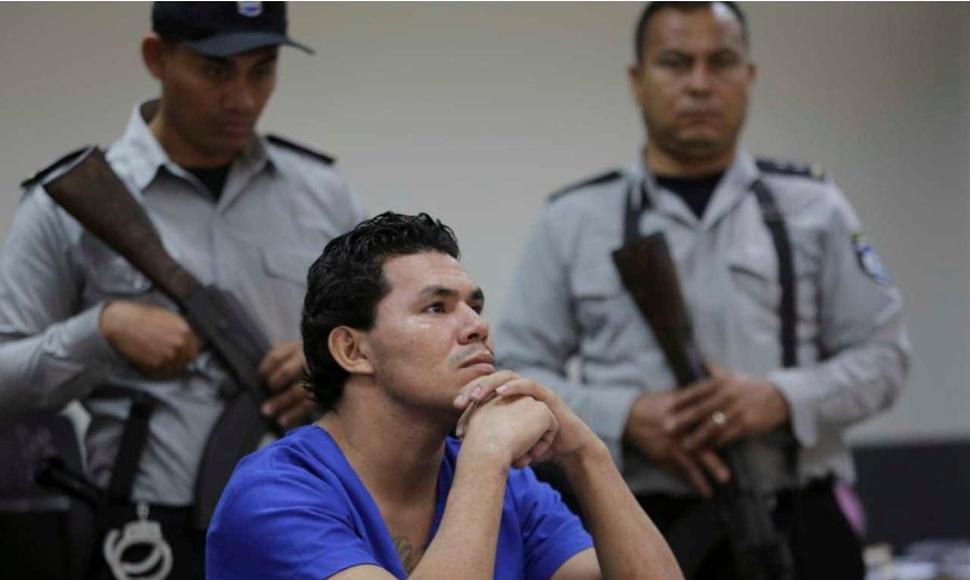
Carlos Alberto Bonilla during the reading of his sentence. Photo take from El 19 Digital
Originally from Jinotepe, Selva was sentenced on May 20th to four years in prison. His alleged crime was the manufacture, trafficking, possession and use of restricted arms or explosive artefacts. The Police claimed they found him in possession of a homemade bomb, like the ones used during the social protests. Lester Selva is a computer engineer and taught classes at the Nicaraguan University of Humanistic Studies.
Archivado como:
PUBLICIDAD 3M
PUBLICIDAD 3D